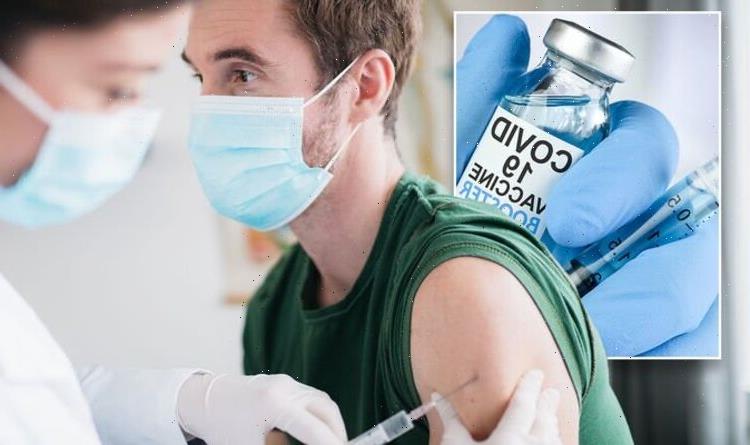Dr Amir Khan discusses 'variant proof' coronavirus vaccine
We use your sign-up to provide content in ways you’ve consented to and to improve our understanding of you. This may include adverts from us and 3rd parties based on our understanding. You can unsubscribe at any time. More info
Nearly 18 months since the first vaccinations went into people’s arms and there’s are several problems the world has to deal with.
How does the world live with Covid?
Is a fourth jab necessary?
What about the poorer nations?

All of these questions are interlinked; studies have recently come out about the effectiveness of the fourth jab against Covid-19.
The results reveal a simple truth, they’re not that effective.
As a result, doctors are sceptical about their use with research showing doctors oppose fourth vaccinations being administered to the general public.
In the UK, a fourth vaccine is currently being ofAs a result, scientists are sceptical about their use with research showing twice as many healthcare staff think the public should receive a fourth jab than those who think they should.fered to the over-75s.
Instead, scientists say thoughts should turn to modifying the vaccine so it can take on the current dominant variant of Covid, Omicron.
Current vaccines are very good at fighting the original variant, but Omicron is less deadly and more transmissible.
The key aim of the vaccine is to stop transmission; this is where poorer countries and the “vaccine gap” comes into play.
Sir Andrew Pollard – the chairperson of the Joint Committee on Vaccination and Immunisation (JVCI) – recently criticised how the world has found itself in a position where the poorest nations are not able to provide their first dose. “We haven’t even managed to vaccinate everyone in Africa with one dose,” Sir Pollard said.

If people in poorer nations can’t be vaccinated, then there’s a greater likelihood the vaccine will mutate, and the globe will once again find itself in the lucid grip of restrictions.
Closing the vaccine gap and modifying the vaccine gap could be where health authorities turn their attention going forward.
For now, healthcare professionals are broadly supportive of current government measures.
This is according to Daniel Ghinn, CEO of Creation: “The Government’s plans to offer a fourth jab to the elderly and vulnerable appears to be in line with the thinking of the majority of healthcare professionals.”

Recently, the UK government took the decision to lift all of its remaining Covid restrictions including the legal requirement to self-isolate if a person tests positive.
From April 1, free testing will also be removed; critics say this could create a testing gap amidst a cost-of-living crisis that will hit the poorest the hardest.
Case numbers are set to rise as a result, but the government is going to be less able to detect a spike as it plans to pull back from mass testing.
As Covid spreads once more, the UK is choosing to know less about the Covid-19 virus; how much this costs in lives lost to long Covid and its associated risks is yet to be seen.
Source: Read Full Article
